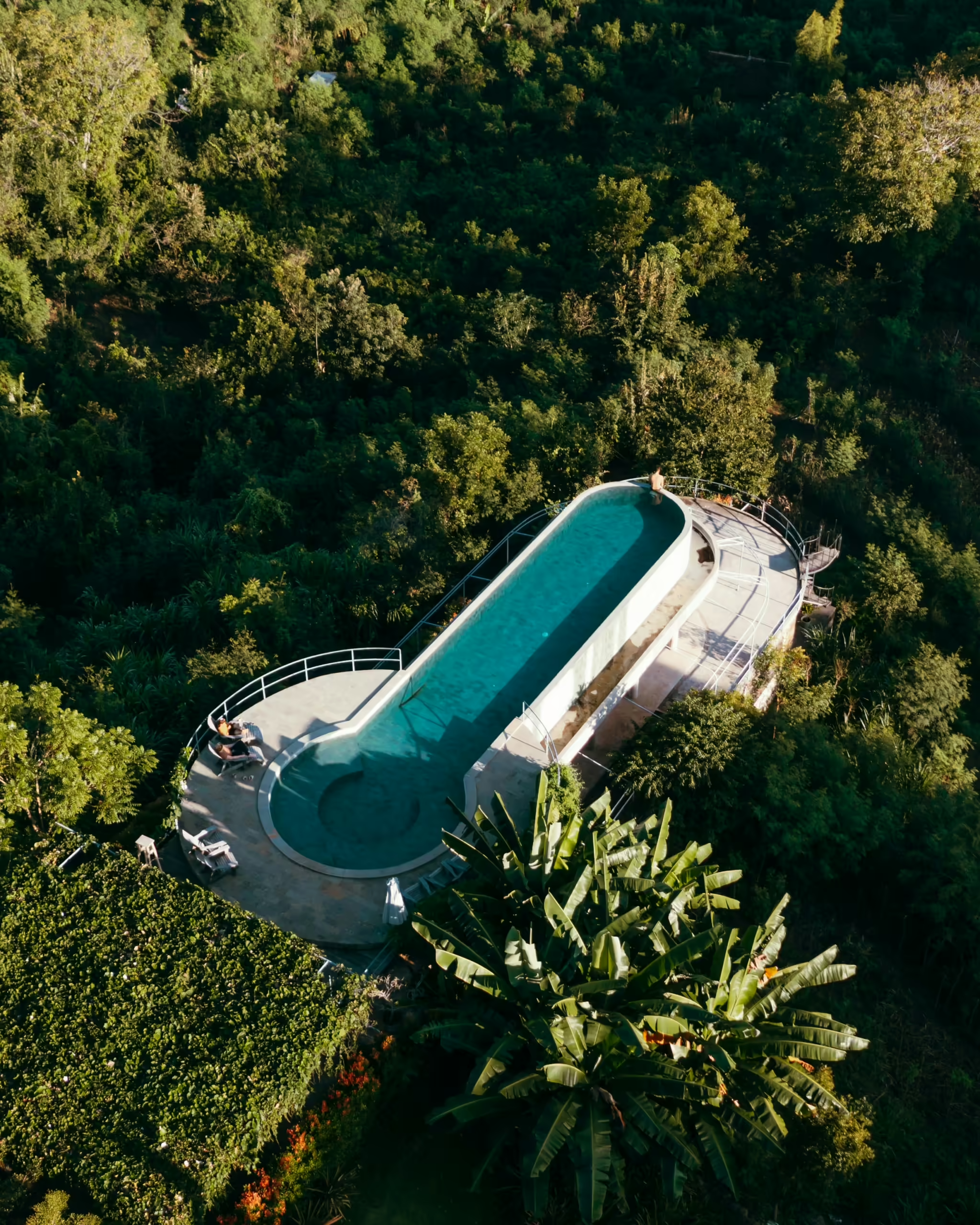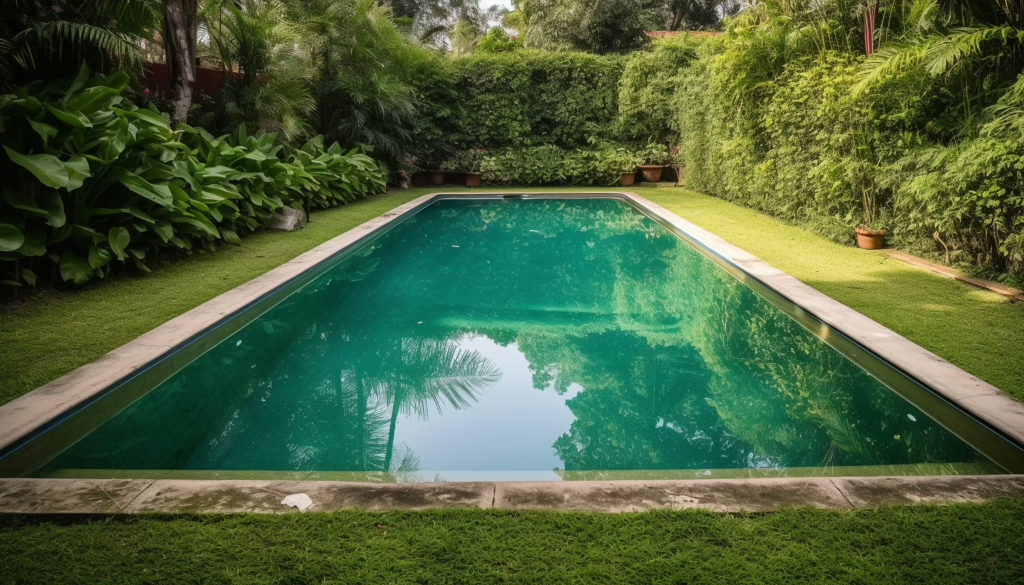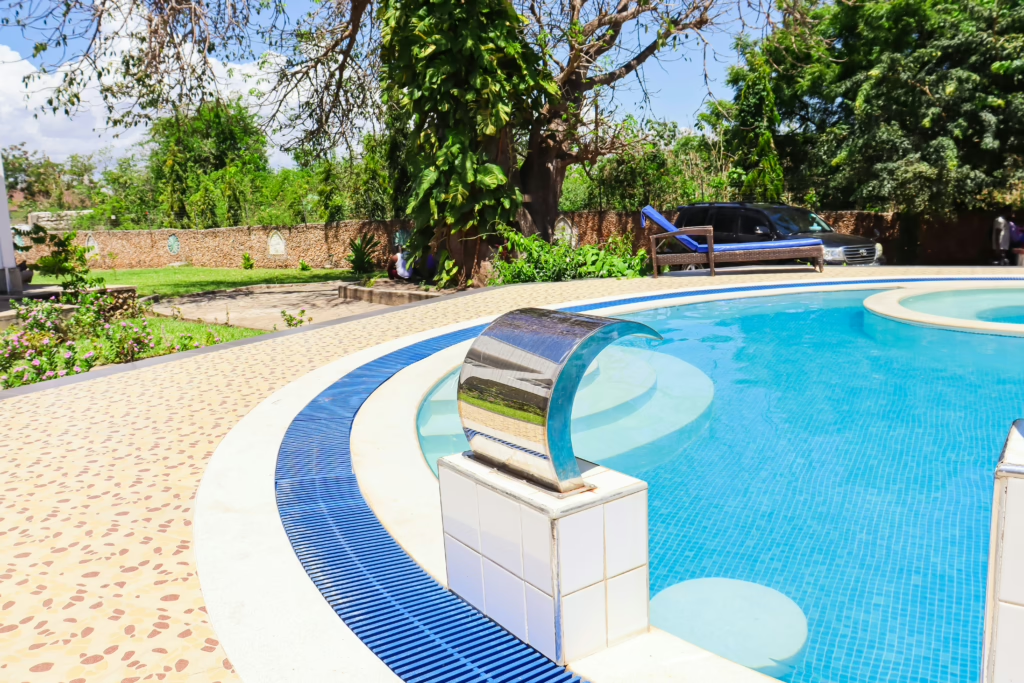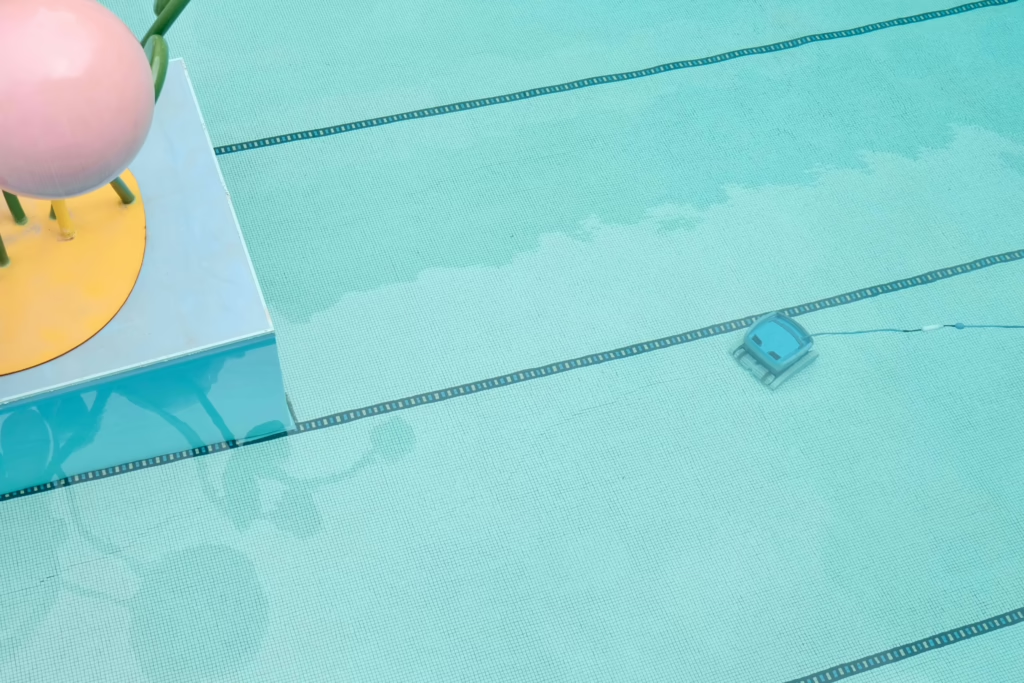Pool filters play a vital role in maintaining clean, clear water and ensuring a safe swimming environment. Acting as your pool’s first line of defense, they capture debris, bacteria, and algae to keep your pool fresh and inviting. However, over time, filters accumulate dirt and require regular cleaning to function efficiently.
Proper pool filter maintenance not only improves water quality but also extends the life of your pool equipment, saving you money on repairs or replacements. Whether you prefer a DIY approach or want the convenience of hiring professionals, understanding the basics of pool filter cleaning is essential.
Types of Pool Filters
Knowing your pool filter type is key to effective maintenance. Filters generally fall into three categories, each with its own cleaning requirements:
1. Sand Filters
- How They Work: Sand filters use a bed of sand to trap particles as water flows through.
- Cleaning Method: Backwashing, a process that reverses water flow, flushes out contaminants.
- Frequency: Backwash monthly or when pressure rises by 8-10 psi above normal levels.
2. Cartridge Filters
- How They Work: These filters use pleated cartridges made of paper or polyester to capture debris.
- Cleaning Method: Rinse the cartridge with a hose regularly and deep clean with a specialized solution every few months.
- Frequency: Requires more frequent cleaning than sand filters but provides finer filtration.
3. Diatomaceous Earth (DE) Filters
- How They Work: DE filters use a fine powder made from fossilized algae for ultra-fine filtration.
- Cleaning Method: Backwash regularly and add fresh DE powder after each backwash. Full disassembly and deep cleaning are recommended annually.
- Considerations: DE powder can be hazardous if mishandled, so caution is necessary.
Signs Your Pool Filter Needs Cleaning
Routine cleaning is essential, but some clear warning signs indicate it’s time to give your filter extra attention:
- Cloudy or Murky Water: If your pool water looks dull or unclear, the filter may be clogged and unable to trap particles effectively.
- Reduced Suction Power: Weak suction during pool vacuuming often signals a blocked filter.
- High Pressure Gauge Readings: Many pool filters include a pressure gauge. If the reading is unusually high, it’s a sign that the filter needs cleaning.
Ignoring these signs can strain your pump and reduce the efficiency of your filtration system, potentially leading to costly repairs.
Steps for Cleaning Pool Filters
Each filter type has its own cleaning process. Here’s how to care for them properly:
Sand Filters
- Turn off the pump.
- Set the valve to “backwash” and let it run until the water is clear.
- Rinse the filter and resume normal operation.
Cartridge Filters
- Turn off the pump and open the filter housing.
- Remove the cartridge and rinse it thoroughly with a garden hose, ensuring every pleat is clean.
- Soak the cartridge in a cleaning solution for deep cleaning, especially if buildup is visible.
DE Filters
- Backwash the filter to remove debris.
- Add fresh DE powder to maintain filtration efficiency.
- Fully dismantle and clean the filter once a year to remove deep-set debris.
Why Hire Professionals for Pool Filter Cleaning?
While DIY cleaning is manageable for routine maintenance, professional services offer several advantages, especially for larger pools or more complex systems:
- Expertise: Professionals have the training and experience to clean filters thoroughly and inspect for potential issues.
- Specialized Tools: They use commercial-grade equipment and products, ensuring a deep clean that DIY methods may not achieve.
- Time Savings: A professional can handle the job quickly and efficiently, freeing up your time for other priorities.
Regular professional maintenance ensures your pool operates at peak performance year-round.
DIY vs. Professional Pool Filter Cleaning
Deciding whether to clean your pool filter yourself or hire a professional depends on several factors:
- Cost: DIY cleaning is more affordable upfront but risks improper handling, which could lead to expensive repairs. Professionals charge more but deliver expert results.
- Time: DIY cleaning can be time-consuming, especially for DE filters. Professionals complete the task quickly and thoroughly.
- Safety: Handling pool chemicals and equipment requires care. Professionals follow strict safety protocols, reducing risks.
For the best results, consider scheduling professional deep cleanings at least once a season to complement your DIY efforts.
FAQs
1. How often should I clean my pool filter?
The frequency depends on the type of filter you have:
- Sand Filters: Backwash every month or when the pressure gauge shows an 8–10 psi increase.
- Cartridge Filters: Clean every 2–4 weeks, with a deep cleaning every 3–6 months.
- DE Filters: Backwash monthly and perform a thorough cleaning once a year.
2. What are the signs my pool filter needs cleaning?
Signs that your pool filter needs cleaning include:
- Cloudy or murky water.
- Weak suction during vacuuming.
- High readings on the filter’s pressure gauge.
- Visible debris or dirt in the pool despite regular cleaning.
3. Can I clean my pool filter myself?
Yes, routine cleaning is manageable for most pool owners. However, make sure to follow the manufacturer’s guidelines and use proper tools and cleaning solutions. For deep cleaning or repairs, hiring a professional is recommended.
4. How long does it take to clean a pool filter?
Cleaning a pool filter typically takes 30 minutes to an hour, depending on the filter type and its condition. DE filters and heavily clogged filters may take longer due to the additional steps required.
5. What happens if I don’t clean my pool filter regularly?
Neglecting pool filter cleaning can lead to:
- Cloudy or unsafe water.
- Reduced filtration efficiency.
- Increased strain on your pump and equipment, potentially causing damage.
- Higher maintenance and repair costs over time.
6. What’s the difference between backwashing and cleaning a filter?
- Backwashing: Reverses water flow to flush out debris from sand or DE filters.
- Cleaning: Involves physically removing and washing filter elements like cartridges or grids for a deeper clean.
7. Can dirty filters cause health problems?
Yes, a dirty filter can lead to poor water quality, which may harbor bacteria, algae, and other contaminants. These can cause skin irritation, eye infections, and other health issues for swimmers.
8. Should I replace my pool filter or clean it?
If cleaning no longer improves filtration performance or if the filter is visibly damaged, it may be time to replace it. Cartridge filters typically last 2–5 years, while sand and DE filters can last much longer with proper care.
9. How much does professional pool filter cleaning cost?
The cost of professional pool filter cleaning varies but typically ranges between $75 and $200, depending on the filter type and pool size.
10. How can I prevent my pool filter from clogging?
- Regularly skim and vacuum the pool to reduce debris.
- Maintain proper water chemistry to prevent algae growth.
- Run the filter for 8–12 hours daily to ensure proper circulation.
- Use a pool cover when the pool isn’t in use to keep out dirt and debris.
Final Thoughts
Regular pool filter cleaning is critical for maintaining clear water, efficient equipment, and a safe swimming environment. While DIY cleaning works for routine maintenance, hiring professionals ensures your pool gets the deep cleaning it needs to stay in top condition.
Ready to enjoy a sparkling, hassle-free pool? Contact Cabana Pools today to schedule your pool filter cleaning service. Our team of experts will handle the hard work, so you can focus on relaxing and enjoying your pool all season long.



